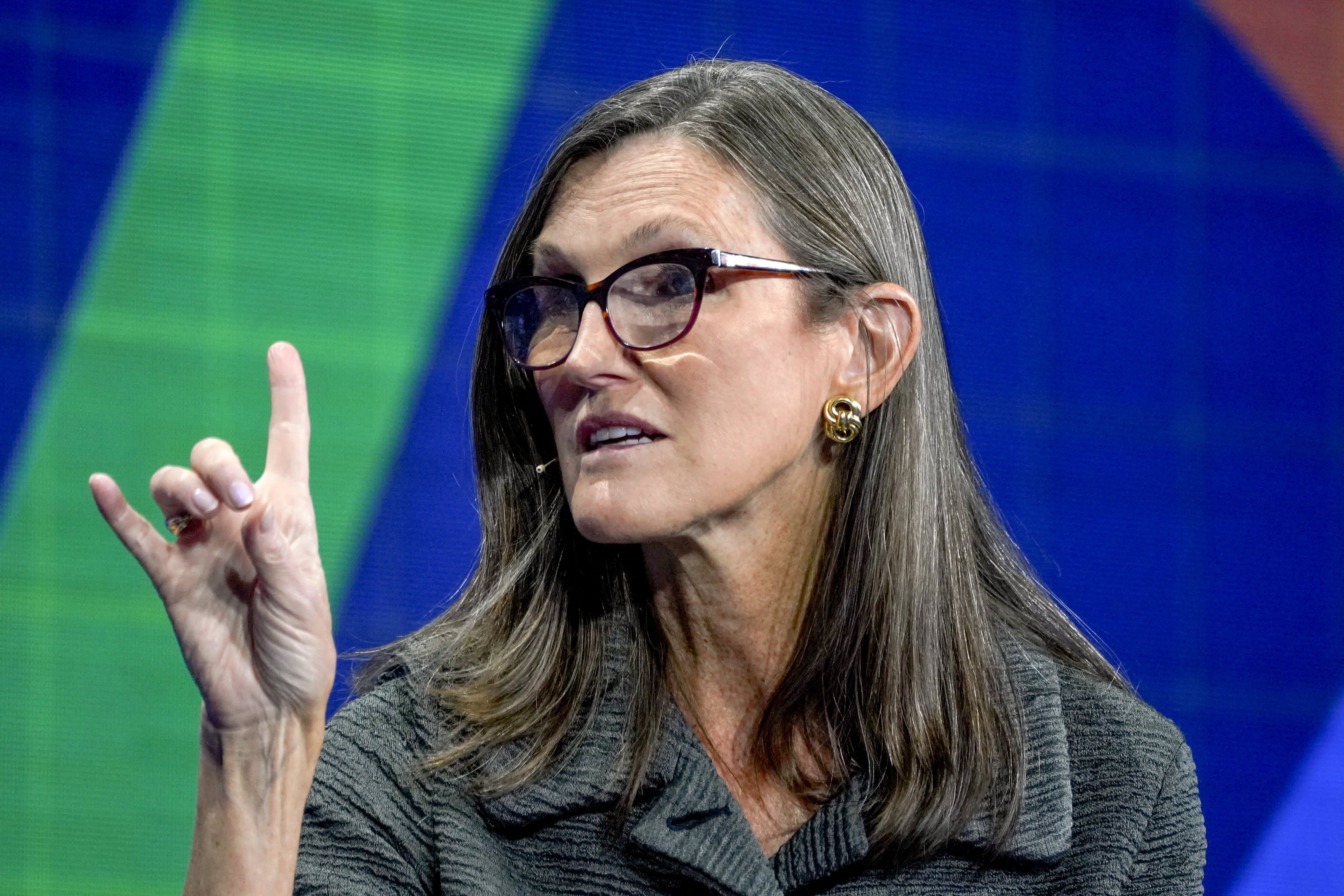Innovation investor Cathie Wood on Monday rebutted Twitter and Square founder Jack Dorsey’s theory on hyperinflation.
The founder and CEO of Ark Invest took to Twitter to expound upon her contrarian theory about deflation after Dorsey tweeted Friday evening that “Hyperinflation is going to change everything. It’s happening.” Wood estimates that her hypothesis will start to play out sometime after the holidays.
“In 2008-09, when the Fed started quantitative easing, I thought that inflation would take off. I was wrong. Instead, velocity – the rate at which money turns over per year – declined, taking away its inflationary sting. Velocity still is falling,” Wood said in a tweet.
While many market participants are concerned about rising prices, the hot-handed investor expects deflation amid a breakdown in commodity prices, a failure of companies that fell behind innovation, company stockpiling and innovation trends taking off.
“Now we believe that three sources of deflation will overcome the supply chain-induced inflation that is wreaking havoc on the global economy. Two sources are secular, or long term, and one is cyclical. Technologically enabled innovation is deflationary and the most potent source,” Wood said in the Twitter thread.
The ARK Innovation portfolio manager noted that training costs for artificial intelligence are dropping 40% to 70% per year, which she believes is a “record-breaking deflationary force.”
“When costs and prices decline, velocity and disinflation – if not deflation – follow. If consumers and businesses believe that prices will fall in the future, they will wait to buy buy goods and services, pushing the velocity of money down,” she added.
Wood also said the S&P 500 companies that did not invest enough in the future will also be a deflationary force in the economy in what is known as “creative destruction.”
“Since the tech and telecom bust and the Global Financial Crisis in 2008-09, many companies have catered to short-term oriented shareholders who want profits/dividends now they leveraged their balance sheets to pay dividends and buy back shares, ‘manufacturing’ earnings per share. They have not invested enough in innovation and probably will be forced to service their debts by selling increasingly obsolete goods at discounts: deflation,” her tweet read.
Wood calls these companies “value traps” and has previously said the major stock market averages are in danger because of them.
The final factor that should lead to deflation is the stockpiling of goods due to the pandemic and supply chain bottlenecks. Many companies have been overordering supply, which the economy is about to shift to the services sector as the economy opens up, Wood has explained.
“Because businesses shut down and were caught flat-footed as goods consumption took off during the coronavirus crisis, they still are scrambling to catch up, probably double- and triple-ordering beyond their needs,” she added.
“As a result, once the holiday season passes and companies face excess supplies, prices should unwind. Some commodity prices – lumber and iron ore – already have dropped 50%, China’s crackdowns are one of the reasons. The oil price is an outlier and psychologically important,” Wood said.
Wood made a name for herself after a banner 2020 in which Ark Innovation returned nearly 150%. The fund is down 2% in 2021 but has seen more than $5.7 billion in inflows this year.
